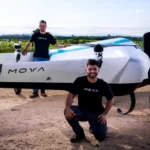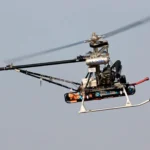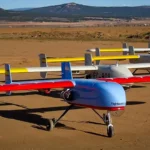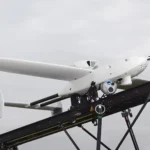The evolution and continuous development of the UAV industry is permitting more and more uses of the UAVs to arise for daily applications. Embention and Visionairtronics have joined their efforts to ensure that these operations can be developed according to the highest reliability standards.
Flying large UAVs remotely has its risks. In the same way that happens in general aviation, safety is the key issue to address. It is well known that one of the main challenges that autonomous systems face is ensuring the reliability of the equipment while maintaining reasonable costs per vehicle.
To avoid crashes, system failures, etc, the autonomous vehicle industry researches and perfects its systems with great emphasis on R&D. Recent developments in sensors, autopilots, and automatic collision avoidance systems, among others, are crucial to increase safety so manned and unmanned aircraft can coexist in the same airspace.
One of the most effective ways to achieve safety and reliability in autonomous systems is with the use of redundant systems. Redundant systems are those in which critical data or hardware are repeated to ensure against possible failures that may arise from their use. Redundant devices are permitted to have failed operational systems so that, if one of the devices fails, the redundant core will execute the task.
Visionairtronics and Embention have joined their efforts to ensure the compatibility of the redundant Veronte Autopilot systems from Embention with Visionairtronics’s redundant power management systems.
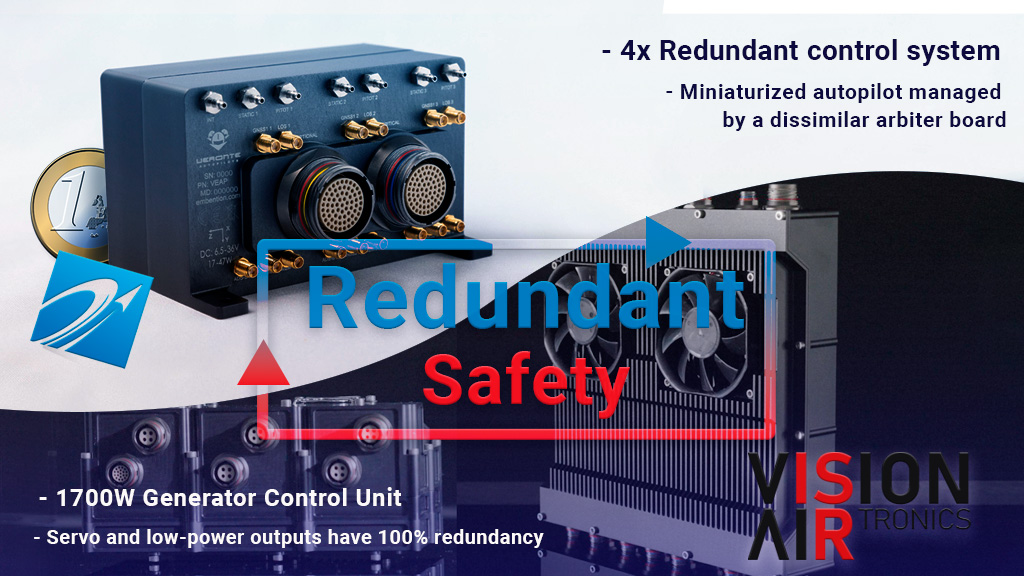
Embention has extensive experience in the UAV field, designing and producing the Veronte Autopilot 4x, a redundant flight controller fully prepared for certification of any autonomous system. It integrates three full autopilot cores plus a dissimilar arbiter board that manages the voting algorithms in charge of the redundancy. This redundant FCS has been designed so that there is no single point of failure and customized voting strategies can be configured.
Visionairtronics is an expert on military UAV operations, developing onboard power management systems and components adapted to critical operations in demanding environments.
Its redundant 900W PDU (Power Distribution Unit) is capable of keeping a UAV safely in the air and reducing the risk of a crash due to electrical failure. Their GCU (Generator Control Unit) is designed for generating onboard main power, starting the engine, and charging two separate batteries, often used in hybrid VTOL. Additionally, their battery monitor and balancer board converts a “dumb” battery into a smart one and communicates directly with the GCU to control charging and monitor high currents in hybrid applications.
Avionics from Embention and Visionairtronics’s power management systems have been integrated to ensure the compatibility for the operation in highly demanding environments (e.g. military operations, flights in urban areas…).
The combination of system flexibility, reliability, and extensive monitoring capabilities increases overall safety through this ability to activate routines or even emergency procedures with the knowledge of what is happening in the onboard system, making it the perfect combination for critical operations with autonomous vehicles.
About Embention: With 15 years of experience, Embention is a leading drone components company having its main area of expertise in the development of UAV autopilots for the autonomous control of both manned and unmanned vehicles.
About Visionairtronics: Austria-based company specialized in engineering, systems development, product supply, and training in the defense and government industry, focusing on highly reliable power management systems for UAV manufacturers.
